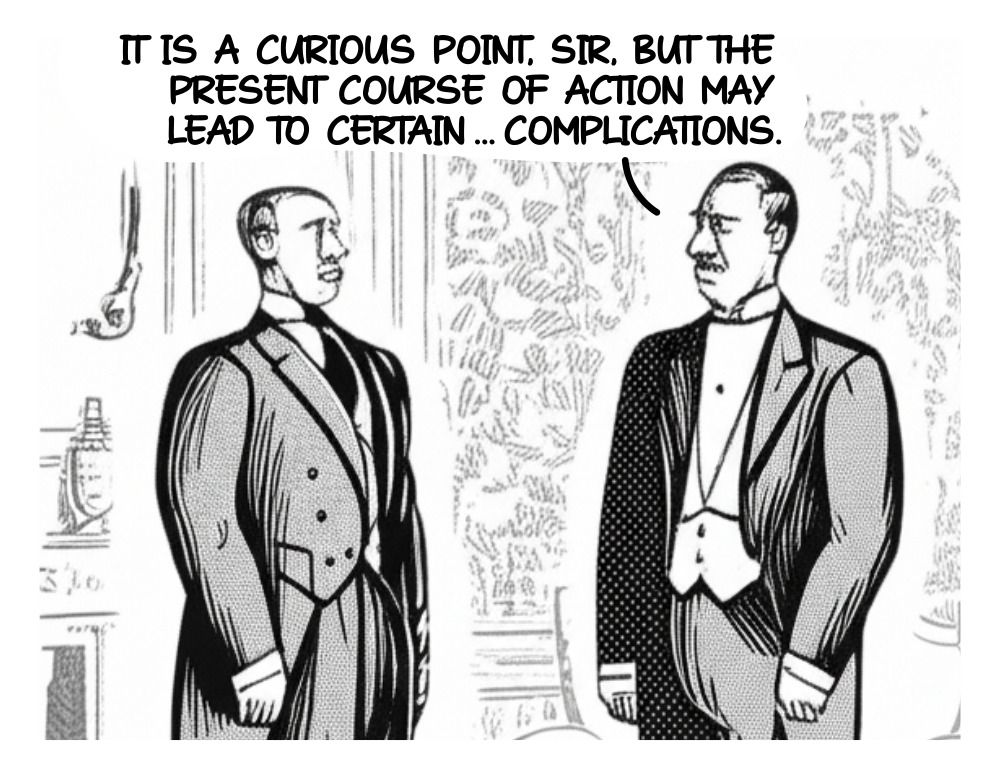 Most conversations don’t collapse because of rudeness. They collapse because one person is doing all the work.
Most conversations don’t collapse because of rudeness. They collapse because one person is doing all the work.
You ask a question, you get the bare minimum back, and the burden of keeping things alive falls entirely on you. What’s missing, on their side, is what might be called a conversational breadcrumb: a small, volunteered detail that gives you something to build on.
Consider the mechanics. You ask, “How was your weekend?” and they say, “Good.” Nothing to work with. Had they said, “Good. I finally tried that new Thai place on the corner,” you’d have somewhere to go. The difference isn’t politeness—it’s a willingness to share a bit more of their life. One answer is inert; the other keeps things moving. A person who says, “I’m a lawyer,” tells you something. A person who says, “I’m a lawyer, though most of my time involves intellectual property disputes for toy companies,” gives you three things to follow up on.
People who don’t offer breadcrumbs usually aren’t being difficult. They’re habitual minimalists. Some treat conversation as merely information transfer—anything beyond the precise answer feels like excess. Others self-edit, convinced their details are too trivial to share. Either way, if you’re more invested than they are in pursuing the exchange, both types will disappoint you. If you’re genuinely curious, almost any specific detail is interesting. What feels inconsequential to them is often exactly what you were hoping for.
You can try to draw them out. “Was it a good trip?” invites a verdict. “What was the best part?” requires a feeling, which is considerably harder to answer in one word. But if two genuine attempts yield nothing, it’s worth stopping. The most underrated conversational skill is knowing when to quit. Pushing past reluctance produces frustration, not connection.
And sometimes there’s no technique that helps. Two perfectly capable conversationalists simply aren’t a good fit—interests diverge, rhythms clash, or the timing’s off. That’s not a failure on your part, it’s a fact about the particular combination.
Idea for Impact: When you’re genuinely interested in conversing with someone, a dead end is simply information about where the conversation isn’t going to go. You gave them the opportunity. You tried more than once. That’s enough reason to stop.

 News of a death often arrives on its own schedule, sometimes long after the moment itself, carrying the quiet weight of something that still matters. Many people, confronted with that delay, retreat into silence, convinced the chance to acknowledge the loss has passed.
News of a death often arrives on its own schedule, sometimes long after the moment itself, carrying the quiet weight of something that still matters. Many people, confronted with that delay, retreat into silence, convinced the chance to acknowledge the loss has passed. British comedian and The Vicar of Dibley star
British comedian and The Vicar of Dibley star  In the modern workplace, the line between professional and personal conduct
In the modern workplace, the line between professional and personal conduct 
 Watch out for anyone who demands you jump through hoops just to be treated with basic decency.
Watch out for anyone who demands you jump through hoops just to be treated with basic decency. The
The  Many people overestimate their listening skills, yet true listening is uncommon. However, anyone can become an excellent listener by embracing a key principle: listen
Many people overestimate their listening skills, yet true listening is uncommon. However, anyone can become an excellent listener by embracing a key principle: listen 